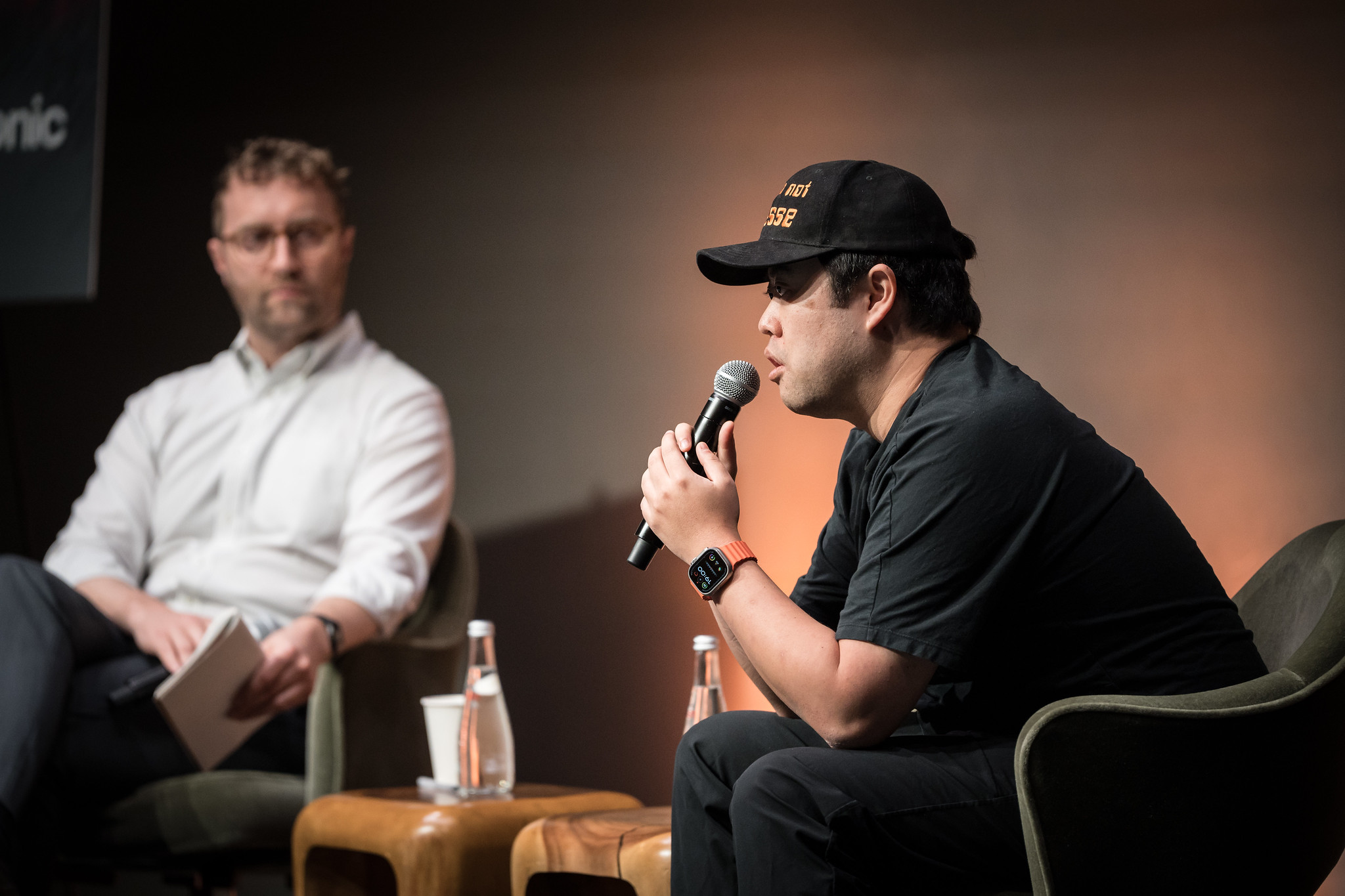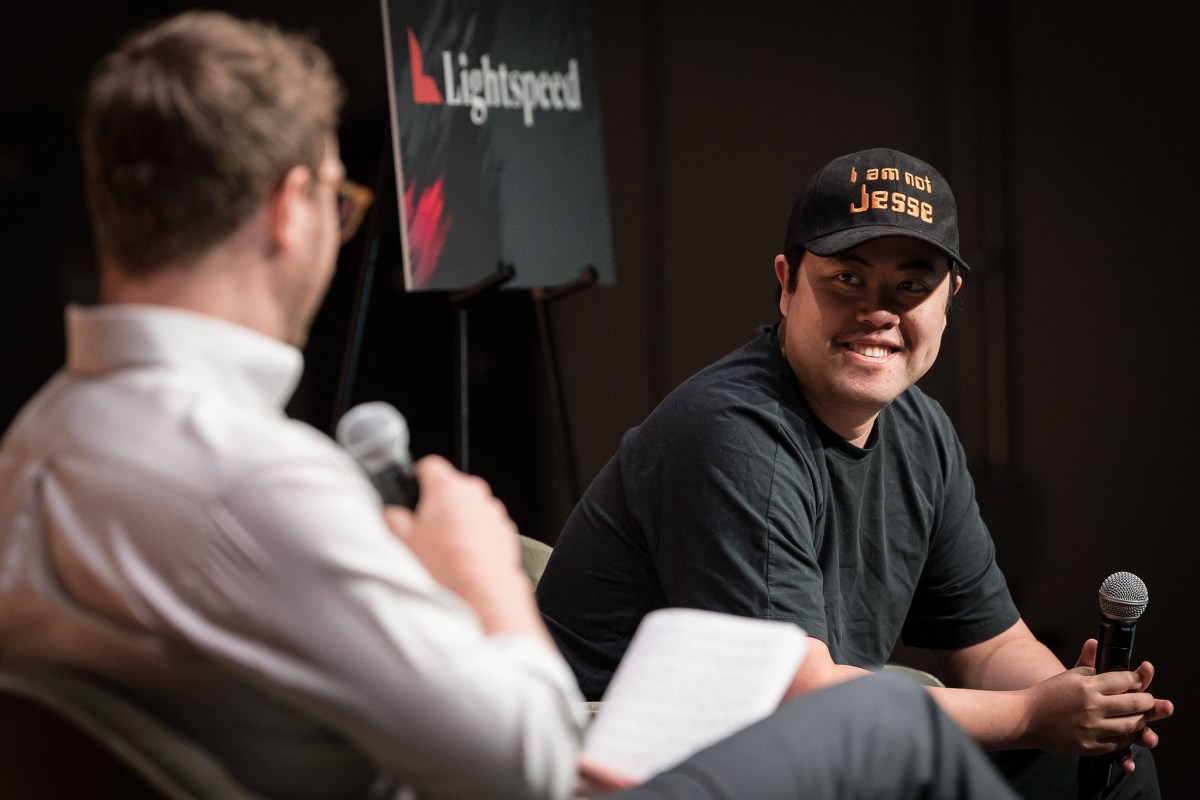Rabbit co-founder and CEO Jesse Lyu isn’t afraid of death … the death of the company, at least. He told TechCrunch that the company is a startup whose fortunes may be swayed by the whims of multibillion-dollar rivals — but that’s no reason to give up and go home.
Appearing onstage at StrictlyVC LA, Lyu explained his rather philosophical approach to the threat of Google, Microsoft, or Apple coming to crush them. (Quotes have been lightly edited for clarity.)
Rabbit’s r1, the pocket AI assistant that attracted considerable hype after its debut at CES, is certainly an original proposal. Half the size of a phone, the device acts strictly as a voice-powered assistant but is able to remotely operate your apps and perform complex actions as well as answer questions and carry on a conversation like ChatGPT. He described the two parts as “intent” and “action.”
“I had this vision many years ago, actually 10 years ago, but the technology wasn’t ready. This is the first time in history that a device like this is actually possible,” said Lyu.
He explained that he had been intrigued by the capabilities of LLMs to understand language and intent and that with the apparent versatility of transformer-based systems, it was natural to try to get them to perform actions as well.
“We immediately tried using super-prompts to get this language model to do things, and the result was very miserable,” he recalled. “There’s a demo from another company to use an LLM to go to MrBeast’s latest YouTube video and leave a comment. Yes, in theory, language models can do that. But it would cause you to have to literally watch your screen doing that step by step. And it takes roughly around two to three minutes to finish one task like that. We just don’t think that can convert into a good end user experience.”
Their solution is the “large action model,” which is trained on hours and hours of actual users interacting with popular apps: “Spotify, Uber, Expedia, DoorDash, you name it. We have the top 800 highest frequency apps. Then we set up this neural symbolic network and ask this AI, which now we call large action model, to review those clips, but frame by frame. The idea is that symbolically, the AI will be eventually smart enough to extract all the buttons, all the elements, and then we can basically build a logic to automate.”

The rabbit r1 in use. Hand model: Chris Velazco of the Washington Post. Image Credits: Devin Coldewey / TechCrunch
The language part is still run on third-party LLM services like Perplexity, which appears to be making a bid to capitalize on Rabbit’s success, offering a year of free service on top of whatever the r1 provides. I suggested that the API costs and other considerations could represent a danger to the startup’s solvency.
“First of all, we’re not losing money by selling r1, which is a very, very, very significant achievement, especially for new startup on gen 1. We’re not going to be bankrupt by selling more units. I give all the credit to my hardware team of amazing guys for being able to basically negotiate down the parts and the BOM [bill of material] costs,” he said. “We’re really close to 100,000 orders. Two days before the keynote I I told my team, it will be really nice if we can sell 500 units on day one. But we sold 18,000.”
As for a subscription, Lyu just doesn’t see it as working, especially when the thesis of the device is cheap and simple. Though he did mention that users will be able to train and sell their own app-specific models later on, and Rabbit would take a cut of that, but cautioned that this is a long-term plan with no specifics yet.
Lastly, when confronted with the fact that the biggest, richest companies in the world are spending billions to get ahead in AI, Lyu provided an almost Zen perspective on the prospect of being crushed under the heel of Google, Microsoft, or Apple (whose CEO Tim Cook just said will “break new ground” on AI this year).

Image Credits: TechCrunch
“I’m not delusional, to think that we’re not a startup. We are a startup,” he said. “I mean, the first lesson I ever learned from Y Combinator two years ago is that 99% of startups will die. If your mentality as an entrepreneur is, ‘Oh, I have a genius idea, and I can guarantee this will work, no matter what all these Big Tech companies try …’ I mean, you’re delusional. There is no such thing like that. The reality is a startup is a survival game, and you better spend your time focusing on your own stuff.”
“They’re gonna do what they’re gonna do, and I’m gonna do what I’m gonna do, right? There’s gotta be some founders, when they heard Apple is doing Apple Cars, they stopped, right? They just canceled. Now what? I think it’s good to have this level of competition that’s only going to help us grow faster, or die faster, which is the nature of startups. It’s either or — I don’t know yet. But I’m trying my best — like I said, it’s a survival game.”
You can watch the full panel below.

